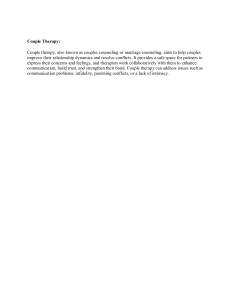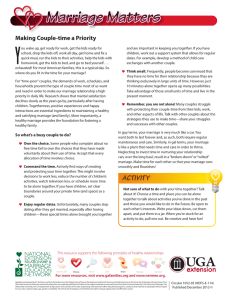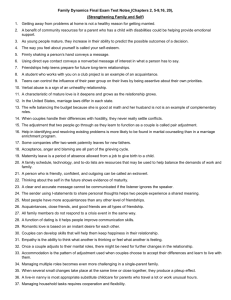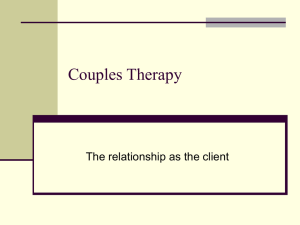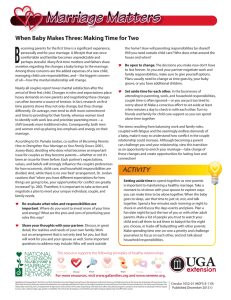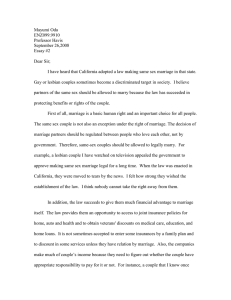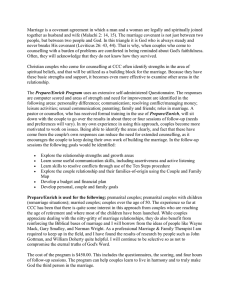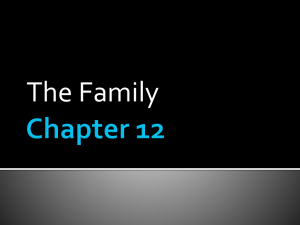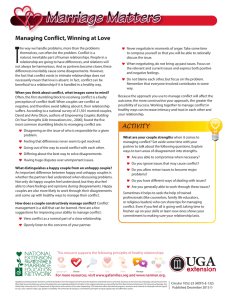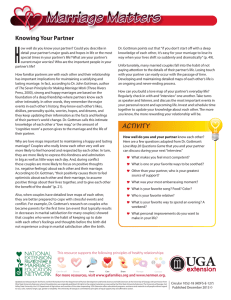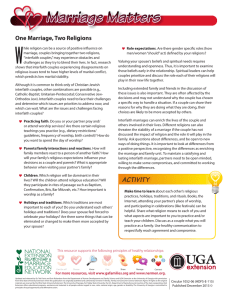Healthy Relationship & Marriage Education
advertisement
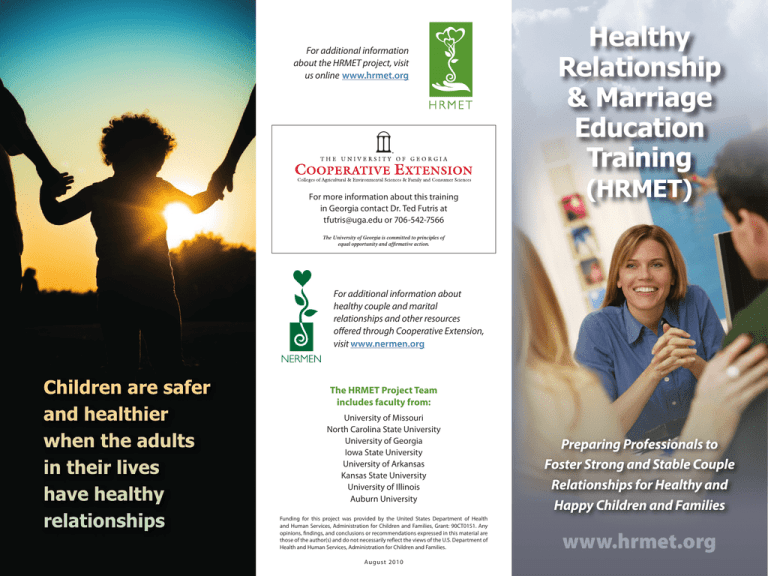
For additional information about the HRMET project, visit us online www.hrmet.org For more information about this training in Georgia contact Dr. Ted Futris at tfutris@uga.edu or 706-542-7566 Healthy Relationship & Marriage Education Training (HRMET) The University of Georgia is committed to principles of equal opportunity and affirmative action. For additional information about healthy couple and marital relationships and other resources offered through Cooperative Extension, visit www.nermen.org Children are safer and healthier when the adults in their lives have healthy relationships The HRMET Project Team includes faculty from: University of Missouri North Carolina State University University of Georgia Iowa State University University of Arkansas Kansas State University University of Illinois Auburn University Funding for this project was provided by the United States Department of Health and Human Services, Administration for Children and Families, Grant: 90CT0151. Any opinions, findings, and conclusions or recommendations expressed in this material are those of the author(s) and do not necessarily reflect the views of the U.S. Department of Health and Human Services, Administration for Children and Families. August 2010 Preparing Professionals to Foster Strong and Stable Couple Relationships for Healthy and Happy Children and Families www.hrmet.org The goal of HRMET is to improve the stability and well-being of children by helping their parents/caregivers develop the knowledge and skills needed to form and maintain healthy couple and marital relationships. Through this training, child welfare workers and other professionals will learn principles and skills they can use to educate individuals and couples in healthy relationship practices. So what are the secrets to happy and healthy relationships? The fact is…there are no secrets! Research shows simple acts of kindness, connecting with your partner on a daily basis, managing stress, working through conflict in healthy ways, and remaining committed to making the relationship work are essential components to a healthy relationship and marriage. These are skills that individuals and couples can learn and apply. But, for many couples, models of these relationship skills may not exist. They need someone who is trained and that they trust to teach them. Research shows that children are happier and healthier when the adults in their lives have healthy relationships— whether married or not. By passing on information about healthy relationships and marriage, you’ll be helping the adults you work with make healthier choices. Healthy couple relationships often spill over into healthy parentchild relationships. Now that is good for children! www.hrmet.org How is this different than marriage counseling? Marriage counseling/therapy is useful and has its place, but it is NOT our goal. Counseling is about repairing problems and serious issues in relationships (intervention), which is best left to licensed and trained professionals. The goal of relationship and marriage education is to share principles and skills (prevention) that can reduce stress and help individuals and couples have happier relationships—at any stage of their relationship. Is this about encouraging couples to get married? No. Every adult has the right to make his or her own relationship choices. Though research shows that adults and children, on average, benefit from marriage, research exists that can help any adult make healthier relationship choices. The goal of this training is to give more people access to that research to improve their chances of enjoying healthy relationships, regardless if they are married or not. This training emphasizes the importance of building on individual, couple, and family strengths. What can I expect to learn during the HRMET? This training has three primary objectives—at the end of the training, you will Better understand the numerous benefits of healthy couple, marital, and co-parenting relationships for children, parents, and society. Become aware of the research-informed principles, practices, and processes that foster healthy couple relationships. Gain knowledge, tools, and skills that will increase your ability to help individuals and couples strengthen their relationships. Our trainings are available in multiple formats, including one and two day workshops, web-based interactive classes, independent study courses, and a face-to-face graduate school course. To learn more visit: www.hrmet.org The HRMET curriculum and resources were developed as a collaborative effort by members of the National Extension Relationship and Marriage Education Network (NERMEN). For more information or additional resources, visit www.nermen.org
